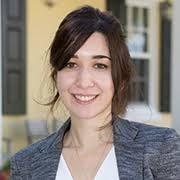Dr Mira Siegelberg

Mira L. Siegelberg is University Associate Professor in The History of International Political Thought at Cambridge University. She received a PhD in History at Harvard University in 2014, after which she held a postdoctoral fellowship at the Princeton Society of Fellows, and a permanent lectureship in History and Law at Queen Mary, University of London. Her research focuses on the intellectual and legal history of international order and the history of modern legal thought. Her first book, Statelessness: A Modern History was published by Harvard University Press in October 2020.
My research examines the historical origins of the conceptual, normative, and legal frameworks that define the boundaries of international politics and international order. I am centrally interested in how ideas and expectations about the norms of interstate order emerge, and how these expectations have shaped global political order.
One of the main objectives of my research to date has been to understand how mass displacement in the twentieth century set the moral and political boundary lines between international and national spheres of authority. My book, Statelessness: A Modern History is the first intellectual and legal history of the concept of statelessness from the late nineteenth century to the present day. The book explores the theoretical, political and legal response to the rise of mass statelessness—the category that following the First World War came to define the absence of national status—and its relation to the modern regimes of law and rights that today segment people as citizens of states and as subjects of particular international legal regimes. This research draws together the approaches and methods of the history of political and international political thought with the history of international order. By charting the consequences of the rise of statelessness as a mass phenomenon on the justification of the boundaries that define international order, I aim to recover its central importance for comprehending contemporary dilemmas and political possibilities, and to engage a larger public concerned with the moral and political questions surrounding migration and the boundaries of political protection and membership. The book received the 2022 Francesco Guicciardini Prize for Best Book in Historical International Relations from the International Studies Association, the 2022 Certificate of Merit in a specialized area of international law from the American Society of International Law, the 2021 Jerry Bentley Book Prize from the World History Association (co-winner), and a silver medal for the 2023 Laura Shannon Prize in European Studies. It is currently being translated into German, Arabic, and Chinese.
